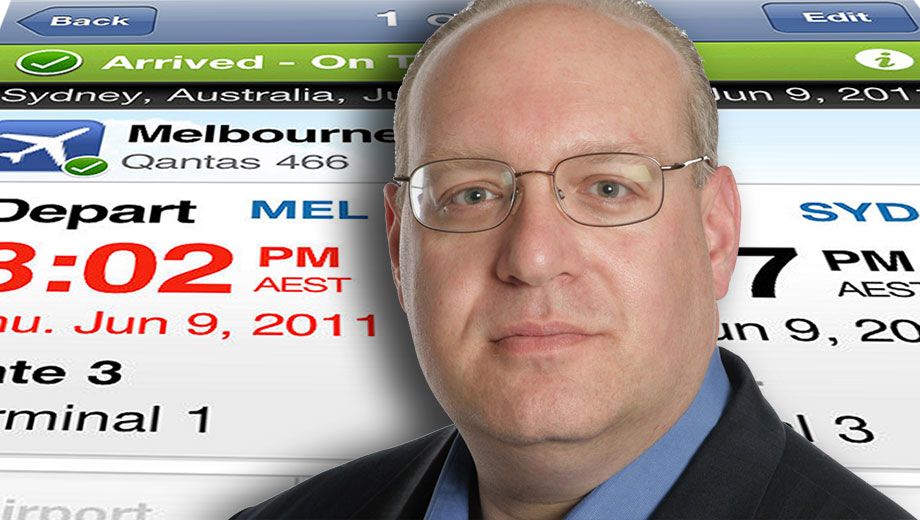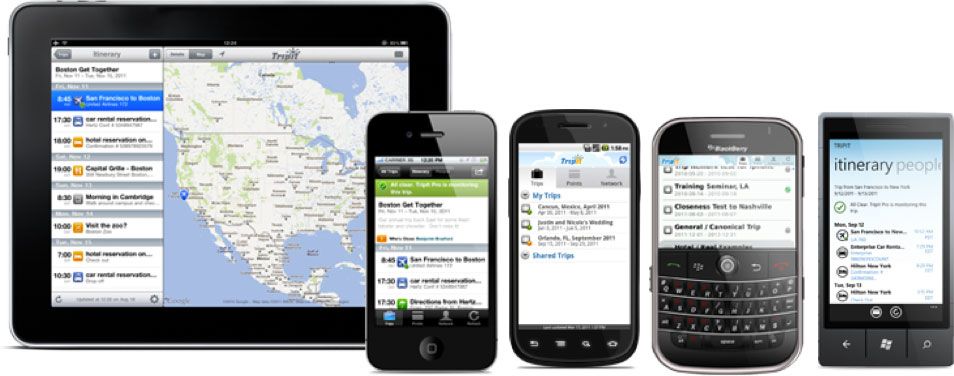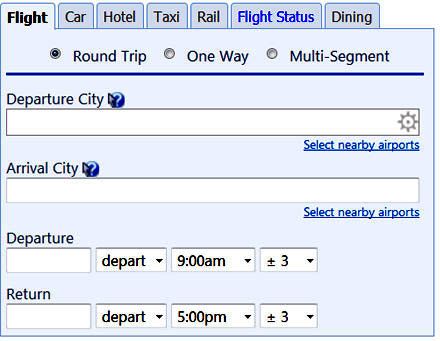Michael Eberhard is a frequent flyer's frequent flyer… each year he travels 300,000 miles, criss-crossing between Australia, the US, Asia, India, New Zealand and abroad.
He is also the Executive Vice President of Concur, which makes smartphone apps and services including TripIt -- a market-leading app for keeping track of your travel itineraries.
Australian Business Traveller caught up with him to hear about where he sees the future of travel.
Australia is one of the biggest markets for TripIt, he says. "Australians are very much first movers, when it comes to technology. If you look around the world and see what percentage of business travellers use online booking, you would find Australia near the top of the list."
As a result, TripIt gives a high priority to Australian users unlike some of the other online travel apps. For example, TripIt can display gate details for flights at Australian airports, where this function often only works at US airports in competitors' apps.
"Our big push has been not necessarily been to define different requirements for the Australian market, but to make sure that all the functions of the app work in Australia," Eberhard claims.
TripIt's plan to conquer the world
As a free app, TripIt is used by millions of travellers around the world. Concur makes money from it through a Pro version that can also alert you to check in to your flight; allow you to tell a taxi driver what terminal to go to as you approach an airport; see what gate your flight is at in most airports; get push notifications of delays, cancellations… and more.
But it's not Concur's bread and butter -- the real money the company earns is from helping companies and business travellers manage the onerous task of expense reports.
"I was at dinner the other day with the CEO of a company who says he spends three to four hours compiling expense reports after each trip," Eberhard says. Needless to say, no-one, from the CEO down, relishes the task of expense reports.
The company makes two expense tracking apps -- Concur (pictured below -- the app is the same name as the company) and Breeze. The former is for large companies, and the latter for smaller ones of less than 100 employees.
One killer feature in both apps is the ability to pull credit card statements directly from Australian banks and card providers like American Express, so that travellers don't even have to enter corporate expenses into a log. As long as they spend the money on their card, it's automatically listed in the app.
The other great feature is the ability to snap a photo of a receipt and associate it with an expense entry pulled down from the bank account. It allows expense reports to be done at the time an expense is incurred, with just a few seconds' work, rather than hours of work at the other end.
Use your iPhone to negotiate better deals with travel providers
Concur also makes money by being a travel agent of sorts -- companies that take up the Concur or Breeze app can book travel through the apps or website for each app.
Australian Business Traveller raised the question: "how can companies be sure they're getting good value for money buying through Concur?"
Eberhard's answer is interesting.
"We are agnostic enough to allow our tool to search published fares through the global distribution system [the computer system used by most travel providers to advertise pricing for their products worldwide], but also airline direct fares that aren't advertised through the GDS"
"Number two, Concur allows companies or their agencies to load in their corporate fares -- which obviously aren't available on airline websites."
"It also allows you to notify employees that they might think they're getting the lowest fares, but that the company has a back-end rebate agreement with a particular airline, so even what looks like a slightly more expensive fare might be cheaper overall for the company."
The expense tracking side of things comes in to play in getting lower prices from travel providers too, Eberhard says.
Having a centralised expense reporting system allows firms to see summaries of travel activities -- "for example, companies can very easily see that they do X number of legs between Sydney and Hong Kong and then put that route out to tender easily with airlines."
"That's where you get the best deals from carriers -- negotiating on specific legs, not just on whole of world travel with one airline," he says.
"So after those negotiations are done, when staff go to book a flight, they can see that Cathay Pacific or Qantas is the preferred supplier between Sydney and Hong Kong, for example".
"That sort of thing can save you three or four per cent on the entire travel spend -- and on hotels it can be anywhere from 10 to 30 per cent."
Likewise, companies can do deals with rental car companies to have a blanket loss/damage waiver policy across all car hires, and when staff do car rental searches they can see that certain companies have loss damage waiver already included, so they don't have to buy the insurance separately.
The future: travel agent in your pocket?
Eberhard is passionate that mobile phones and tablets will become the primary tools for travellers. "In Asia, there are many countries where staff do not routinely have laptops, and they primarily work from their mobile devices," he says.
"Here in Australia, we are still tending to cling to our security blanket of taking a laptop on every trip, along with mobile devices, but that will change."
"Software developers are no longer targeting mobile devices just for simple, reduced functionality. It is now about delivering full functionality on mobile platforms."





Hi Guest, join in the discussion on The man behind TripIt: Michael Eberhard